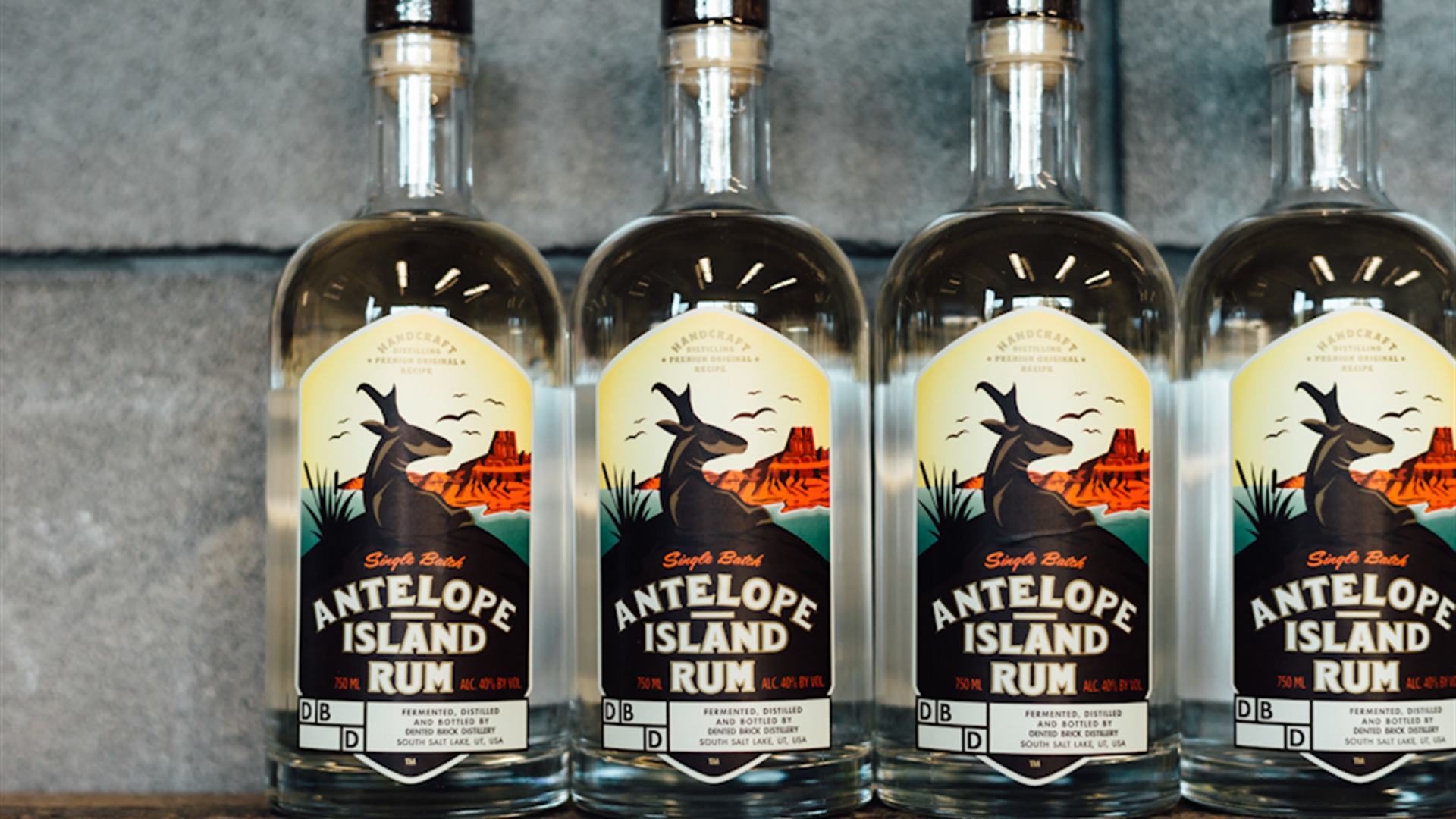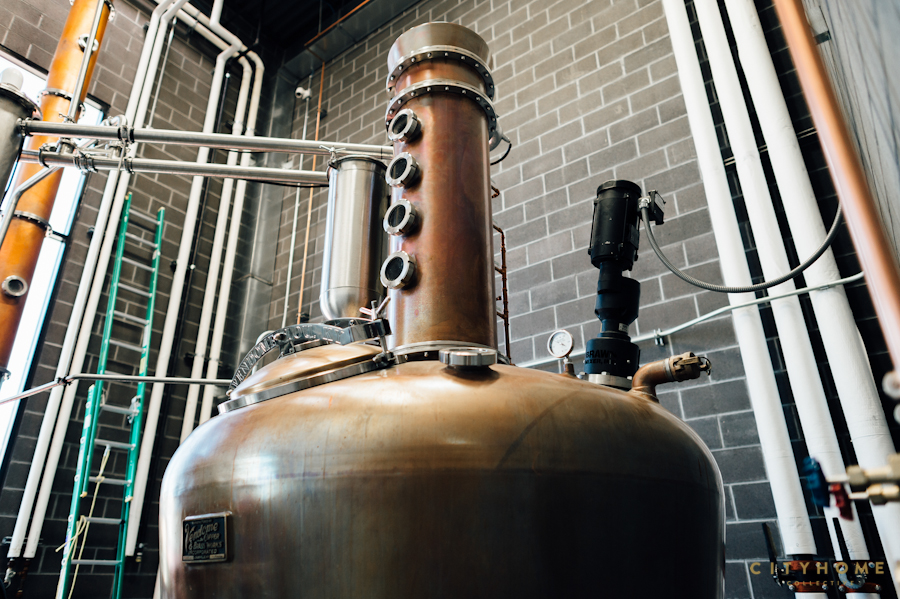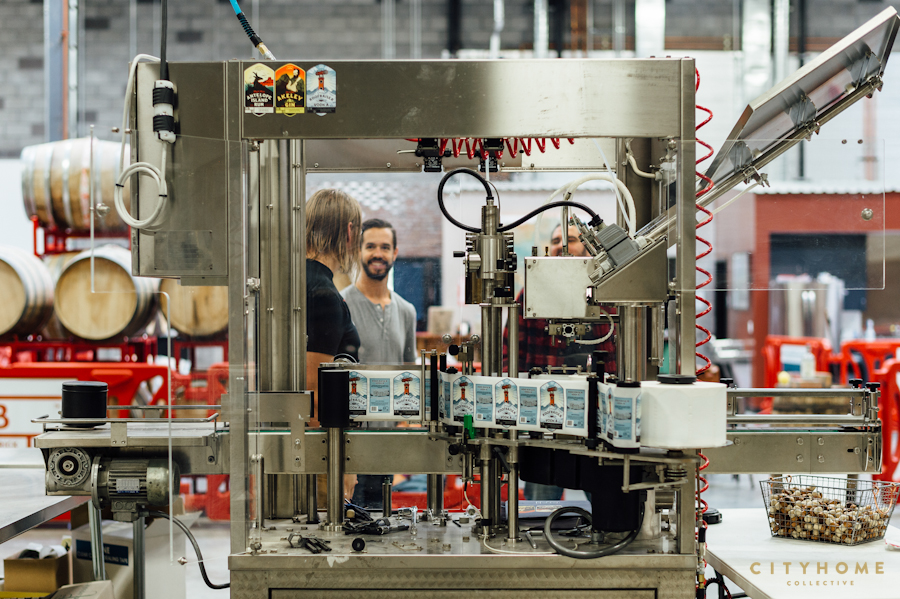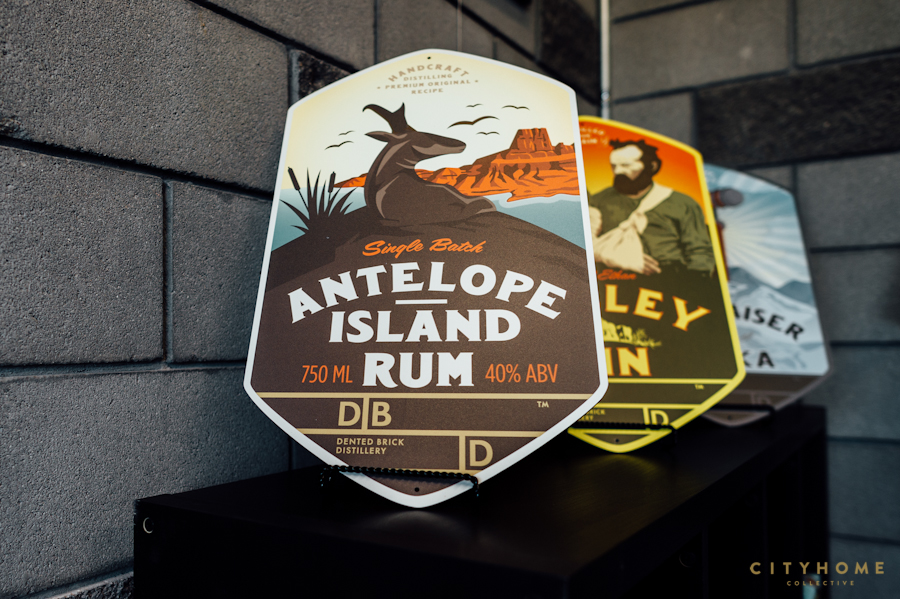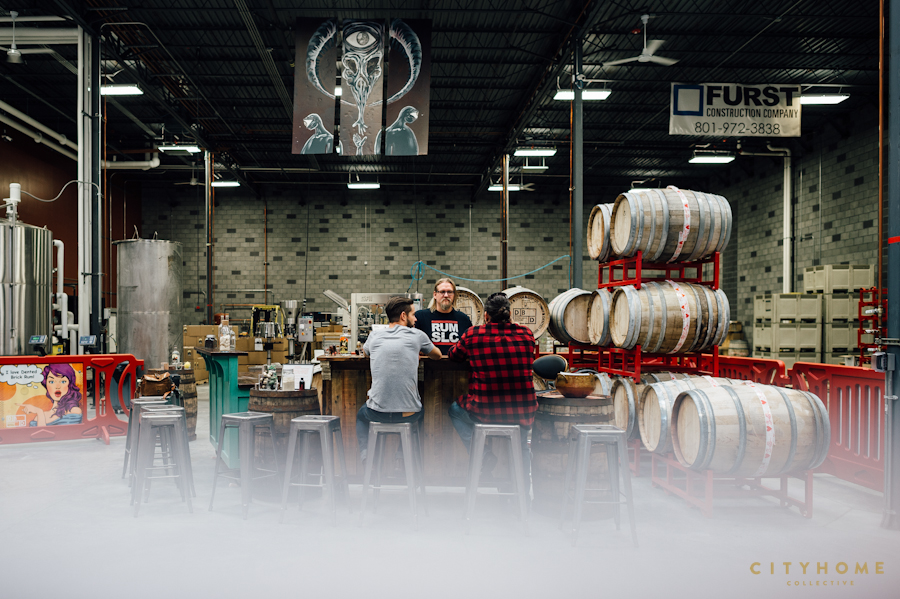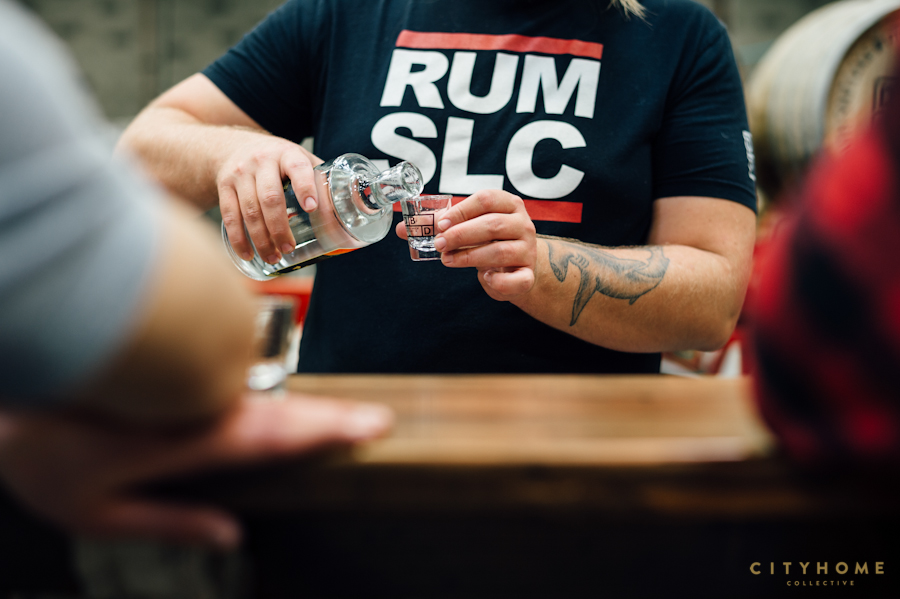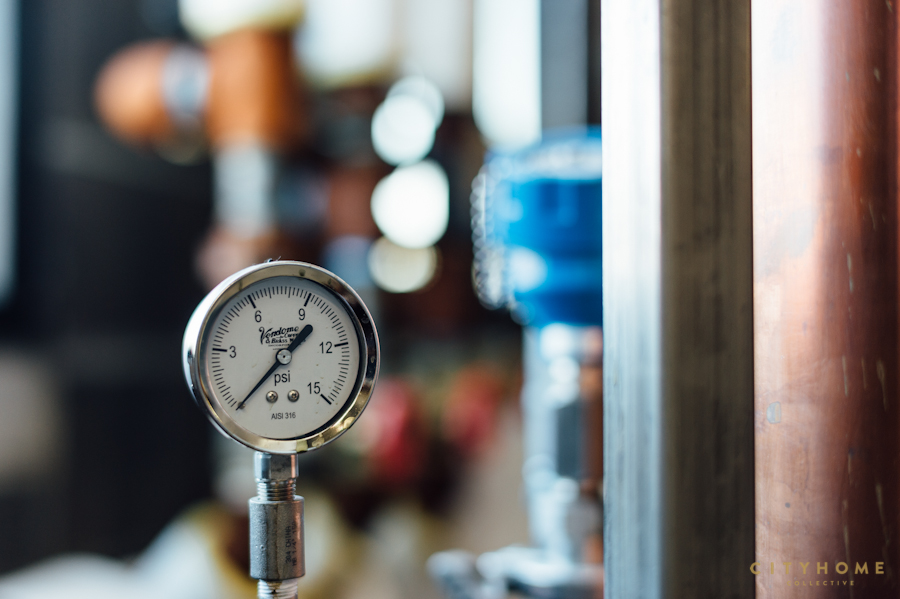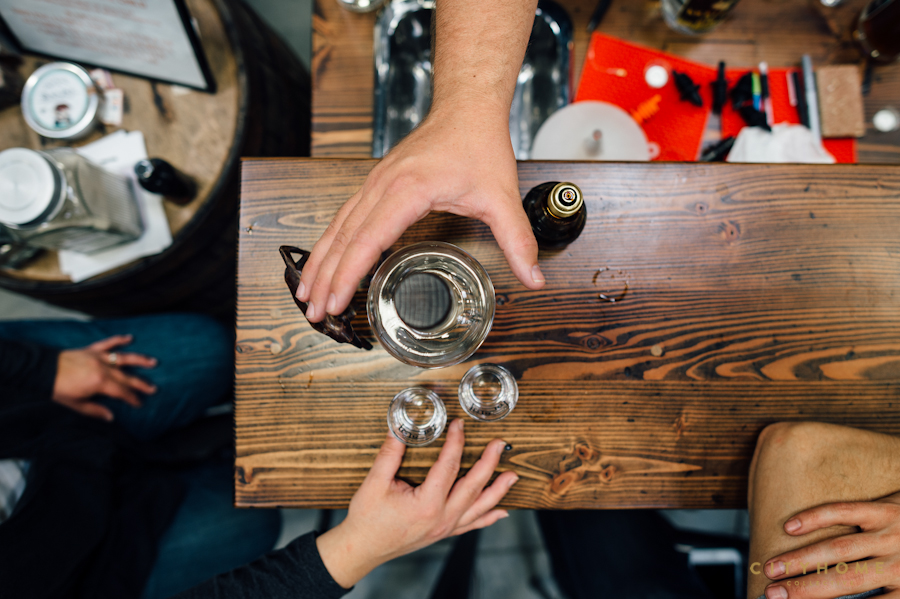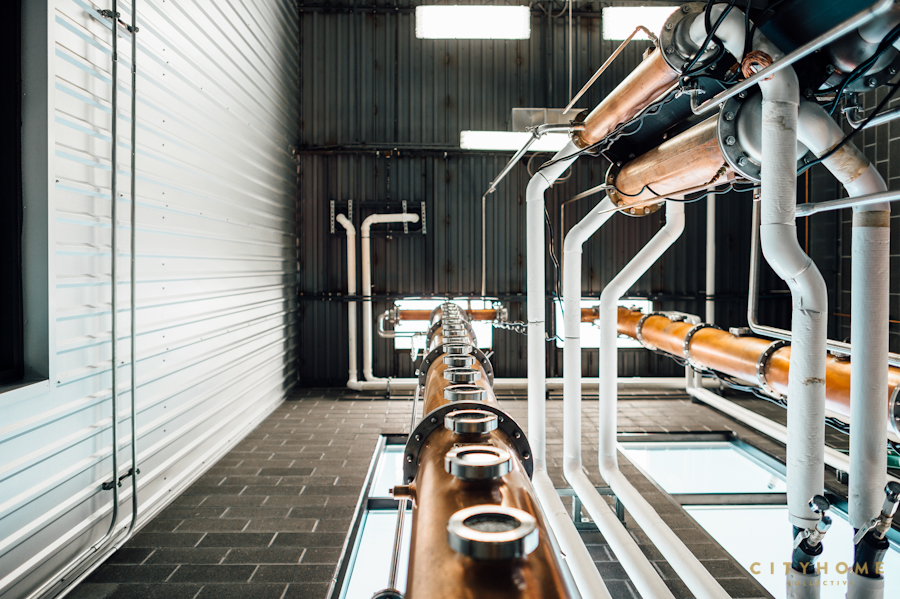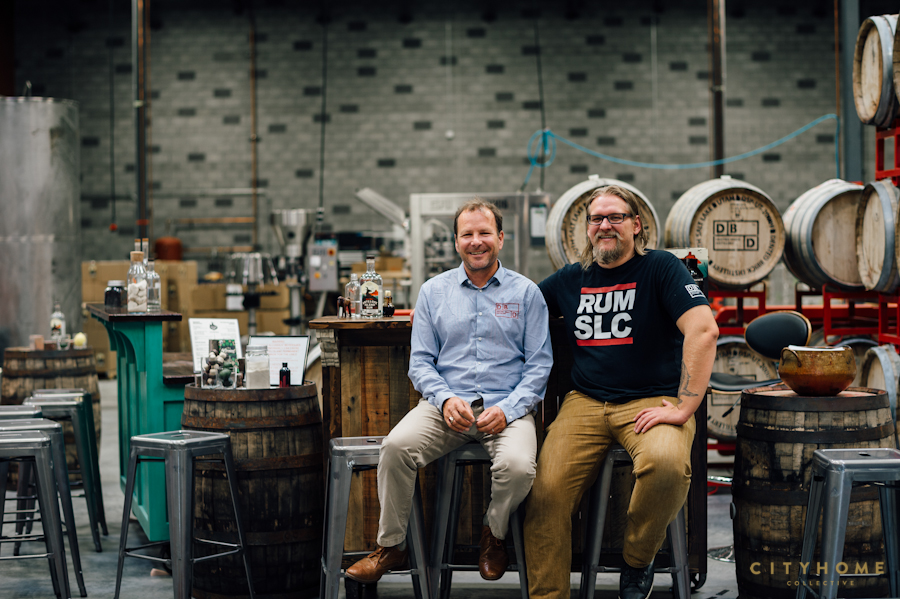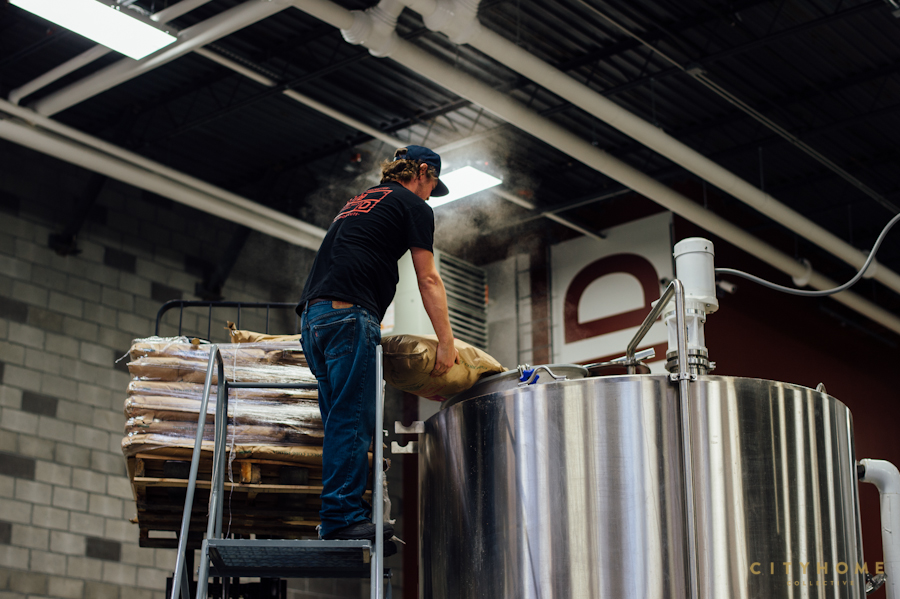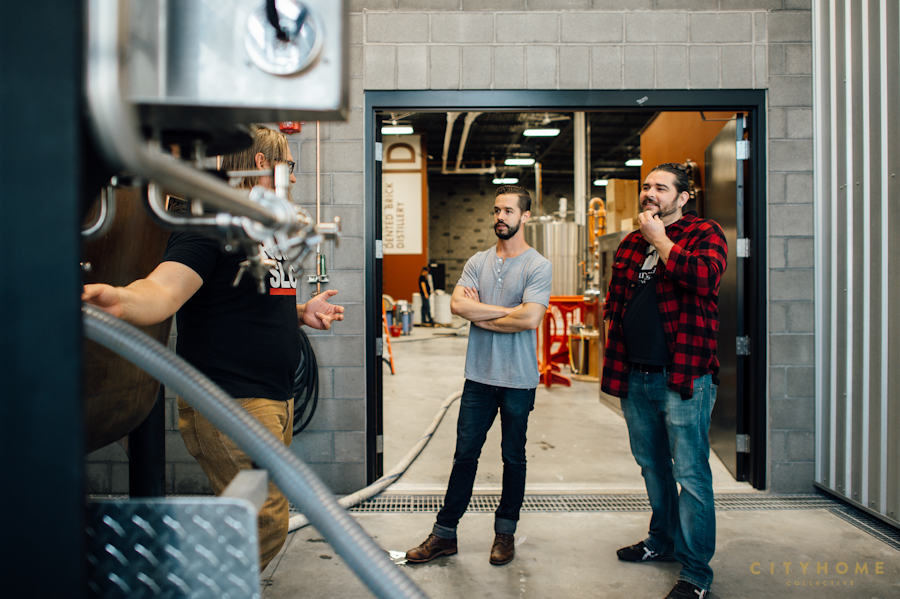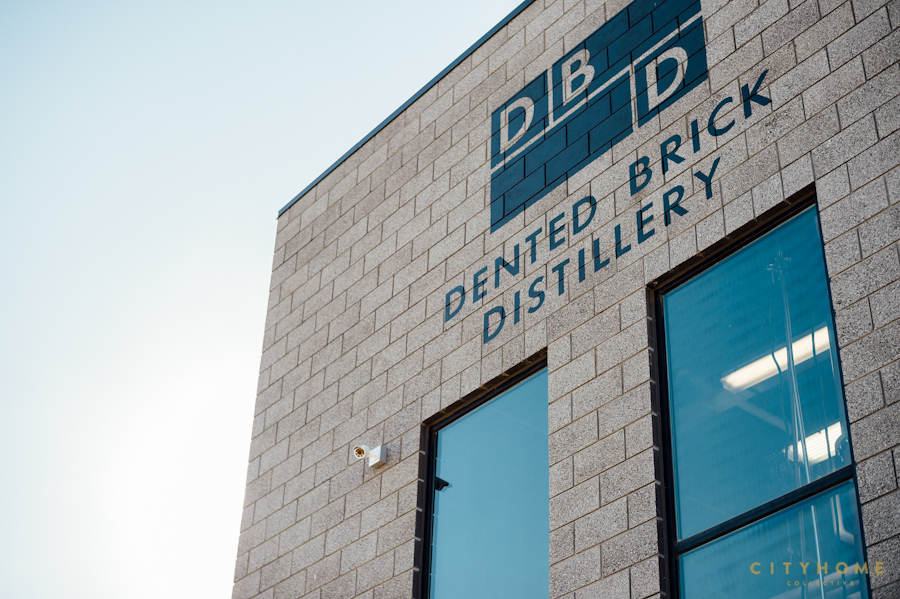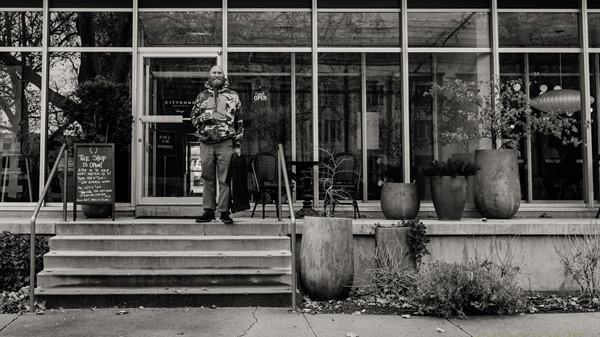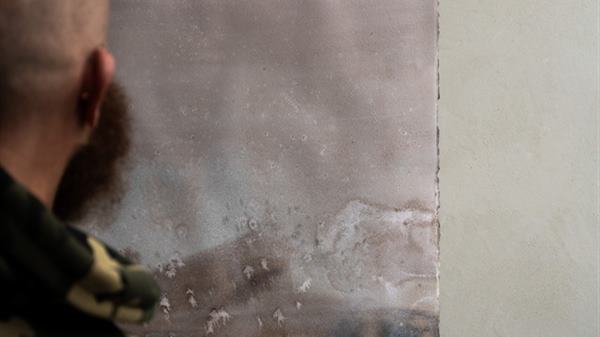“It’s all about the water,” says distiller Ethan Miller. “There are so many variables that play into the distilling process, but if the water doesn’t have the correct pH, or has too many chemical additives or too few minerals, it can throw off everything from initial fermentation to bottle proofing.” Built on land formerly owned by one of Utah’s first distillers, Hugh Moon, the modern distillery utilizes Moon’s original artesian well. According to the folks at Dented Brick, the geology of the Great Salt Lake’s closed aquifer is a kickass bit of distilling serendipity, the lake bed plane is “composed of a sandy gravel perfect for filtration of snow melt for our artesian well. Its high mineral content is ideal for fermentation, a dream sequence for a pure product from our distillery.” Named after the many dented bricks salvaged from the 1919 house on the property, the distillery was built around access to the original water source, which guests can see--and taste right from the spigot--in the distillery’s shop.
No matter how important the water is, however, that’s only one variable at play in the wickedly complex game of booze-mongering, according to distillery founder Marc Christensen.
Dented Brick is one of only a handful of craft distiller-producers operating in Utah.
In the industry it is very common for producers to outsource a large portion of their base spirits, usually by buying the booze in bulk from factories in the Midwest. Local bottlers may further filter, blend, flavor or change the alcohol-by-volume (proof) before bottling, branding and releasing their product, but they often do not even have a still on site.
Miller rather diplomatically says, “its another business model in the industry, for sure.” But by controlling the flavor and complexity of the product from fermentation, through distilling to bottling, craft distillers take on both the risk and expenses of distilling a grain-to-glass (or in the case of rum, cane-to-glass) spirit. A good still, alone, often requires an initial investment well into six figures; Dented Brick’s 28-foot tall custom Vendome still is a glimmering copper thing of steampunk glory, well worth a visit.
Like many of the best distillers we know, Miller’s bit of OCD micro-management pays off in spades, and applies beyond the on-floor production of the company’s initial products (on shelves now: rum, gin and vodka). A bit of a Renaissance man, Miller started out in optometry, but quickly realized that his true passion was for distilling. He worked in the High West blending room, and then moved to Portland as that town’s craft distilling movement was building serious cred. He learned about the distilling process from the inside out, and “distilled about everything imaginable. It was an incredibly creative and innovative time to be a distiller.” Miller created the stellar artwork and graphic design for the product lines, and is as diligent as he is resourceful when developing each product’s flavor profile and branding, saying “Everything has a historical or geographical connection.”
From one of his favorite iconic Utah places, Antelope Island (a smooth white rum distilled from sugarcane and molasses), to a nod to Miller’s own great-great-grand uncle and namesake, Carl Ethan Akeley, the renowned explorer and conservationist (Akeley gin, with citrus notes and an unforgettable Rooibos tea profile). Each product is distinctive within its class of spirits, making for a truly unique beverage experience. Says Miller, “our goal is to make craft spirits that stand out within their category,” and Dented Brick’s do so in spades. In addition to the products described here, Miller has several other spirits in the works from spiced rums to aged whiskey. Check the distillery’s website for product availability, package store hours, or to book a tour and tasting.
Dented Brick Distillery | 3100 S Washington St. | 801.883.9837
